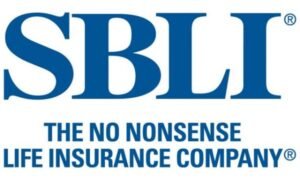
Whole Life Insurance
Let’s look at the main reasons why whole life insurance is bad and why you should consider alternative options.
Whole life insurance is a type of insurance that provides lifelong coverage and a cash value component. While some people may find it attractive due to its guaranteed death benefit and cash value, there are several reasons why any life insurance can be a bad financial decision.
The suitability of whole life insurance depends on the individual circumstances, so it’s not necessarily “bad” for everyone. However, there are several reasons why some people may find it less advantageous than other forms of life insurance:

1. High Premiums
The companies typically have higher premiums compared to life insurance, which provides coverage for a certain period. This can make it more expensive and potentially inaccessible for some people.
2. Complex Products
It can be complex, with countless costs, fees, and investment components. This can make it difficult to understand what you are paying for and how the policy works.
3. Lower Returns
The investment component of the life insurance policy usually offers lower returns compared to other investment options, such as funds or stocks. This means that you may not get as much return on your investment as you would if you invested your money elsewhere.
4. Limited Flexibility
It may not offer as much flexibility as other types of insurance. For example, you cannot adjust your coverage value or premiums as your needs change over time.
5. Real Estate Planning Limitations
It may be useful for real estate planning purposes, but may not be the best option for everyone. If you have significant assets, it may be better to use other real estates planning tools, such as trusts or donation strategies.
Some Advantages and Disadvantages of Whole Life Insurance
Pros:
- Life Insurance: It offers coverage for the entire life of the insured, as long as the premiums are paid. This means that your beneficiaries will receive a death benefit regardless of when you die.
- Guaranteed Cash Value: It usually has a guaranteed cash amount, which means you can build savings over time. This can be a useful tool for retirement planning or other long-term financial goals.
- Tax benefits: The cash value of whole life insurance grows with tax delay, meaning you do not have to pay taxes on the investment gains until you withdraw the money. In addition, the death allowance is usually tax-free for the beneficiaries.
- Property Planning: It can be a useful tool for real estate planning purposes as it can provide a tax-free source of income for its beneficiaries and can help cover property taxes.
The Cons:
- High premiums: The companies generally have higher premiums compared to long-term life insurance, which can make it more expensive and potentially inaccessible for some people.
- Limited flexibility: It may not offer as much flexibility as other types of insurance. For example, you cannot adjust your coverage value or premiums as your needs change over time.
- Lower returns: The investment component of the whole life insurance policy usually offers lower returns compared to other investment options, such as funds or stocks. This means that you may not get as much return on your investment as you would if you invested your money elsewhere.
- Complex products: Whole life insurance can be complex, with countless costs, fees, and investment components. This can make it difficult to understand what you are paying for and how the policy works.
- Opportunity Costs: Since the whole life insurance policy usually has a lower return on investment, you can lose potential profits by not investing your money elsewhere.
Is Whole Life Insurance Worth It?
Whether the whole life insurance is worth it for you depends on your individual circumstances and financial goals. Here are some factors to consider:
- Your age and health: Whole life insurance is usually more expensive than life insurance, so if you are young and healthy, you may be able to get adequate coverage with life insurance at a lower cost.
- Your financial goals: Whole life insurance can provide guaranteed cash value and tax benefits, which can be useful for retirement planning or other long-term financial goals. If you’re looking for a way to build up savings and provide for your beneficiaries, any life insurance might be worth considering.
- Your investment options: The policies typically have lower investment returns compared to other investment options, such as funds or stocks. If you’re comfortable investing in the stock market and can take some risks, it might be better to invest your money somewhere else.
- Your property planning needs: It can be a useful tool for real estate planning purposes as it can provide a tax-free source of income for its beneficiaries and can help cover property tax. If you have significant assets and want to minimize your property taxes, whole life insurance may be worth considering.
Conclusion
Whole life insurance can be a bad financial decision for a variety of reasons, including high premiums, limited flexibility, lower returns, complex products, high yields, the potential for policy failure and missed investment opportunities. If you are looking for life insurance coverage, you should consider life insurance or other alternatives that offer the same benefits at a lower cost. In addition, it is important to consult a financial or professional insurance advisor to help you make an informed decision about your insurance needs.








